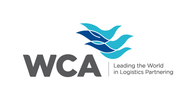

CB15u—Customs Broker Supervision and Control
Subscriber price: $88.00, Non-subscriber price: $114.00
Estimated total study time: 6 hours 19 minutes
![]()
Modernization of the customs broker regulations in 19 CFR 111 requires brokers applying for a national permit to provide CBP with a plan for supervision and control. CBP also recommends all brokers to develop a plan even though is is not required to be submitted. This course discusses best practices for developing these plans.
Modernization of the Customs Broker Regulations
There have been several recent changes to the Customs Broker Regulations in 19 CFR 111. In this lesson, we will discuss what "customs business" means and the requirements for customs brokers to conduct customs business for others.
(Estimated study time: 1 hour 13 minutes)
- Introduction
- Introduction to the Business of U.S. Customs Brokerage
- Types of Customs Broker Licenses
- Individually Licensed Brokers Must "Qualify" the License and Permit
- National Permits Required to Conduct Customs Business for Others
- Changes Due to Modernization in 2022
- Changes to Broker Fees and Introduction of Electronic Payment
- Communication with Broker Management at the Processing Center
- Changes to Electronic Data Submissions for Customs Broker Information
- Broker Exams and Licensing Offered Electronically
- Customs Business must be Conducted in the U.S.
Recordkeeping Requirements and Procedures
This lesson provides a comprehensive overview of the recordkeeping requirements and procedures for entry records in the United States. It details the parties required to keep records, the retention periods for various types of records, and the specific regulations governing these requirements. Additionally, it covers the procedures for recordkeeping in the Automated Commercial Environment (ACE), customs broker records storage, maintenance, retrieval, destruction, and security, as well as the confidentiality of records.
(Estimated study time: 30 minutes)
- Introduction
- Parties Required to Keep Records
- Record Retention Period
- Recordkeeping in the Automated Commercial Environment (ACE)
- U.S. Customs Broker Records
- Customs Broker Records Storage
- Customs Broker Records Maintenance
- Customs Broker Records Retrieval
- Customs Broker Destruction of Records
- Customs Broker Records Security
- Customs Broker's Confidentiality of Records
The Broker - Client Relationship
This lesson provides a comprehensive guide on consistently satisfying client needs and expectations in the customs brokerage industry. It emphasizes the importance of committed staff, good operational organization, and discipline. The document outlines performance standards, operational procedures, and systems for monitoring shipment performance and addressing problems before they result in delays or other adverse consequences.
(Estimated study time: 59 minutes)
- Introduction
- Client Satisfaction through Performance Standards and Good Practices
- Every Shipment and Communication Counts — Do Things "R.I.G.H.T."
- Brokers Must Communicate Directly with Their Clients
- Confidentiality of Client Information
Discovering and Reporting Errors
This lesson focuses on the concept of "reasonable care" that importers must exercise when providing information to U.S. Customs and Border Protection (CBP) for the entry and release of merchandise. Importers are responsible for ensuring the accuracy of customs documentation, including descriptions, classifications, valuations, country of origin, and proper marking of merchandise. The lesson will cover the importance of consulting with customs experts, maintaining accurate records, and the procedures for discovering and reporting errors.
(Estimated study time: 42 minutes)
- Introduction
- Importer's Reasonable Care
- Discovering and Reporting Errors
- Cargo Release and Entry Errors
- Broker Clerical Error, Mistake of Fact or Inadvertence
- Client Error or Omission
- Improper or False Information
U.S. Customs Broker Responsibilities
This lesson addresses regulatory requirements which the CBP places on licensed customs brokers with respect to "responsible supervision" of operations and employees by individually licensed brokers.
(Estimated study time: 1 hour 27 minutes)
- Introduction
- General — "Responsible Supervision" of Employees
- Becoming an Individually Licensed Customs Broker
- Company Level Customs Broker License
- National Level Responsible Supervision
- Responsible Supervision Functions and Relationships
- Reporting Office of Record and Points of Contact
- Employee Information Reporting
- Grant of Authority to Employee
- Revocation, Cancellation, Suspension and Penalties, Oh My!
Creating the Responsible Supervision Plan
This lesson covers each factor of a supervision plan suggesting how responsible supervision and control can be exercised and what evidence CBP is looking for to proover the customs business conducted under the national permit is or will be conducted in accordance with 19 CFR 111.28.
Even though it is only a requirement for new permit applications, it is recommended that every permit holder develop a plan for for responsible supervision and control as a best practice.
(Estimated study time: 1 hour 29 minutes)
- Introduction
- Responsible Supervision and Control Regulations
- Developing a plan for Meeting the Requirements of Responsible Supervision and Control
- Factor 1; Training Provided to Broker Employees
- Factor 2; Issuance of Instructions and Guidelines to Employees
- Factor 3; Broker's Volume and Type of Business
- Factor 4; Reject Rate for Customs Transactions Relative to Volume
- Factor 5; Employee Access to Reference Material
- Factor 6; Sufficient Number of Licensed Brokers to Consult with Employees
- Factor 7; Frequency of Supervisory Visits of Licensed Brokers to Offices
- Factor 8; Frequency of Audits and Reviews by ILB of Customs Transactions Handled by Employees
- Factor 9; ILB Permit Qualifier Involved in Brokerage Operation and Communication with CBP
- Factor 10; Proof of ILB Interest in Broker Operations
- Factor 11; Entry Processing and Duty Payment Timeliness
- Factor 12; CPB and Broker Relationship, Communications and Action
- Factor 13; Broker Officer and Board Member Communications